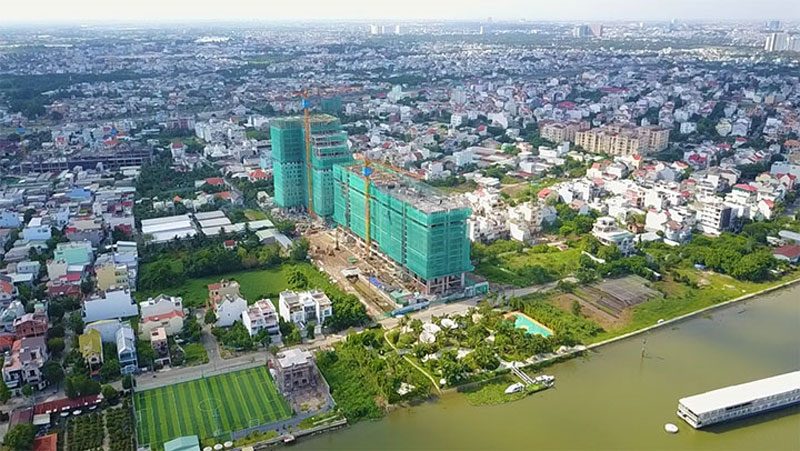Table of Contents
In Vietnam, navigating the intricacies of land acquisition can be daunting, particularly when it comes to understanding the land use levy. This financial obligation arises when acquiring or transferring Land Use Rights (LURs), and understanding its intricacies is crucial for any individual or organization planning land-related activities in the country. This article from NT International Law Firm aims to help you better understand this topic.

Demystifying the Land Use Levy in Vietnam: Latest Regulations and Insights (Updated for December 2023)
What is the Land Use Levy?
Defined in Article 21, Clause 3 of the 2013 Land Law, the land use levy is a payment made to the Vietnamese state for acquiring or transferring LURs. It essentially represents a financial contribution for the privilege of utilizing specific land for defined purposes.

Current Regulatory Framework
Current Regulatory Framework:
The primary legal framework governing land use levies is Decree 45/2014/ND-CP on Land Use Levy Collection, amended by Decree 123/2017/ND-CP. This decree outlines two primary scenarios for acquiring land and paying land use levies:
1. Land Use Right Auction:
- Starting levy determined based on land location and valuation (Article 4, Decree 45/2014/ND-CP):
- Centrally run cities: >= 30 billion VND
- Mountainous/Highland provinces: >= 10 billion VND
- Other provinces: >= 20 billion VND
- Winning auction amount becomes the land use levy paid.
2. Direct Land Allocation by the State:
- Land use levy calculated based on:
- Land purpose
- Land area subject to levies (excluding site clearance & compensation areas)
- Applicable land price from the official land price list (Clause 3, Article 3, Decree 45/2014/ND-CP)
- Reduction factors:
- Article 12 of Decree 45/2014/ND-CP (if applicable)
- Site clearance and compensation costs deducted from levies (if applicable)

Cases Exempt from Land Use Levy
Cases Exempt from Land Use Levy:
As per Article 54 of the 2013 Land Law, land is allocated without levies in five instances:
- Individuals/households directly engaged in agriculture, forestry, aquaculture, and salt production: within specific land limits (Article 129, 2013 Land Law).
- Users of specific land types: special-use forests, protective forests, natural production forests, state agency headquarters land, defense/security land, public non-business land, cemeteries/graveyards (excluding certain cases).
- Public service organizations: lacking financial autonomy for building public works.
- Land designated for resettlement housing: under state projects.
- Communities using agricultural land and religious establishments using non-agricultural land: under specific legal provisions (Clause 1, Article 159, 2013 Land Law).
Beyond the Basics:
To gain a deeper understanding, consider these additional points:
- Multi-storey buildings: In such cases, land use levies are apportioned to individual floors and users.
- Recent initiatives: The government introduced a 30% reduction in land use levies for 2023 to alleviate economic pressures and incentivize development.
- Impact on investors: Foreign and domestic investors need to factor in land use levies as part of their project costs and consider potential exemptions/reductions.
- Future trends: Policy changes are anticipated, potentially including adjustments to levy rates or exemption criteria.
Navigating the Landscape:
With its complexities and nuances, understanding the land use levy requires careful consideration. Seeking qualified legal and financial counsel is advisable to ensure compliance with regulations and optimize land acquisition strategies. By staying informed about the latest regulations and incorporating this knowledge into your decision-making, you can navigate the Vietnamese land use landscape effectively and achieve your land-related goals.

NT International Law Firm is Here to Help You
NT International Law Firm is Here to Help You
NT International Law Firm has addressed the question of what land use levy is. If you have any further questions or concerns regarding land law, please contact our law firm immediately for expert legal advice.
If you require any legal assistance, please feel free to reach out to us via phone at 090 252 4567 or through email: info@ntpartnerlawfirm.com. At NT INTERNATIONAL LAW FIRM, our team is committed to offering you prompt and personalized advice.
You also might be interested in:
“The article’s content refers to the regulations that were applicable at the time of its creation and is intended solely for reference purposes. To obtain accurate information, it is advisable to seek the guidance of a consulting lawyer.”

LEGAL CONSULTING SERVICES
090.252.4567NT INTERNATIONAL LAW FIRM
- Email: info@ntpartnerlawfirm.com – luatsu.toannguyen@gmail.com
- Phone: 090 252 4567
- Address: B23 Nam Long Residential Area, Phu Thuan Ward, District 7, Ho Chi Minh City, Vietnam
